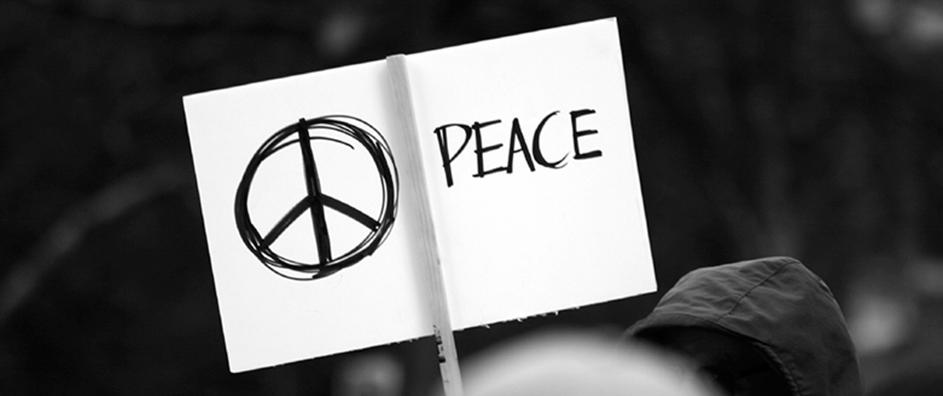In contemporary discourse, the intersection of politics, refugees, and the omnipresent specter of violence often elicits a profound examination of world peace. To grapple with this complex nexus, one must turn to the Bahá’í teachings, which provide a holistic framework for understanding the principles that underpin a peaceful global society. This exploration delves into the intricacies of Bahá’í philosophy, which advocates for unity, justice, and the sanctity of all human life, particularly in the face of the pressing challenges posed by conflicts and displacement.
The Bahá’í Faith posits that humanity is inextricably linked. This interdependence is not merely a rhetorical flourish but serves as the foundation for a robust vision of world peace. The teachings espouse that recognition of our shared identity as members of a single human family is paramount in transcending the divisions that catalyze conflict. The pernicious cycle of violence and the plight of refugees arise in part from an entrenched mindset of “us versus them.” Such dichotomous thinking fosters animosity and breeds the conditions for conflict, where political machinations often prioritize power over humane considerations.
In this light, one must interrogate the role of politics in perpetuating, rather than resolving, the crises facing the world today. When political agendas prioritize national interests over collective human welfare, the implications are catastrophic. The Bahá’í teachings urge leaders to embrace a global perspective, advocating for governance that embodies justice and equity. The notion of justice, particularly restorative justice, is intrinsic to resolving schisms that produce refugee crises. By addressing grievances through dialogue and understanding, political entities can mitigate the very factors that lead to mass displacements and the associated loss of life.
Moreover, the teachings underscore the importance of education in cultivating a peace-oriented mindset. An informed populace is less susceptible to manipulation by divisive political rhetoric. The Bahá’í paradigm encourages individuals and communities to engage in active learning, fostering a culture where empathy and understanding overshadow fear and animosity. This educational imperative extends beyond theoretical discourse; it compels action. Through teaching compassion and collaboration, the Bahá’í community actively participates in alleviating the suffering of refugees, contributing to local, national, and international efforts aimed at providing succor to those displaced by war.
The concept of guns and military might as instruments of policy stands in stark opposition to the tenets of the Bahá’í Faith. Violence begets violence; thus, reliance on arms to assert political dominance only perpetuates the cycle of conflict. The teachings advocate for disarmament and the promotion of peaceful conflict resolution mechanisms. This radical shift in thinking is not merely idealistic; it asserts the practical necessity of prioritizing diplomatic dialogue over militaristic interventions. Such a paradigm shift requires profound courage and commitment from political leaders, who must recognize their roles as stewards of global peace.
Addressing the refugee crisis necessitates not only humanitarian aid but a profound transformation in the political foundations that lead to displacement. The Bahá’í teachings implore us to view refugees not merely as victims of circumstance but as integral members of humanity deserving of dignity and respect. Enshrining the rights of refugees within international law, promoting their inclusion in host countries, and advocating for their agency as active participants in society are essential steps in recognizing their inherent worth.
This perspective aligns with the principles of collective security, emphasizing the responsibility of nations to safeguard the well-being of all, rather than taking refuge in narrow self-interests. The Bahá’í Faith champions the principle of consultation as a means of fostering unity and collaboration among nations. Through shared dialogue, common solutions can be reached to address the root causes of political unrest and its fallout on vulnerable populations.
Integral to this discourse is the acknowledgment of the spiritual dimensions of peace. The Bahá’í teachings are replete with the understanding that material progress must be harmonized with spiritual development. Peace is not merely the absence of conflict; it is the manifestation of justice, equity, and compassion in action. The spiritual virtues of love, kindness, and selflessness serve as a counterbalance to the forces that drive humanity apart. Cultivating these attributes within individuals and societies can create an environment conducive to lasting peace.
In conclusion, the Bahá’í teachings provide a comprehensive blueprint for navigating the tumultuous waters of politics, refugees, and the consumption of violence in society. The integration of unity, justice, and education emerges as a recurring motif, guiding individuals and communities toward a more harmonious existence. To genuinely understand where world peace fits within the context of these pressing issues, one must embrace a paradigm that seeks not merely to alleviate symptoms but to transform the underlying causes of conflict. By fostering an ethos of compassion and prioritizing collective human welfare, we can work towards a peaceful and equitable world.
